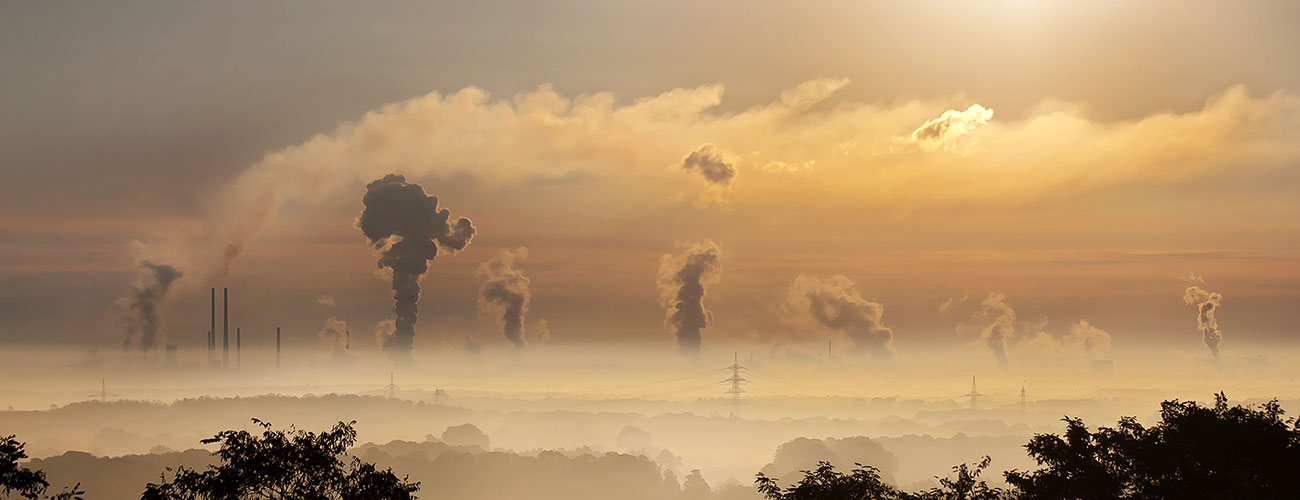Sign up for The Media Today, CJR’s daily newsletter.
Beginning in 1999, the Department of Justice pursued (and ultimately won) a civil lawsuit against several major tobacco companies. By denying the negative health effects of tobacco, the suit alleged, the industry was engaging in fraud. Today, researchers often compare the fossil fuel industry’s support for an array of groups that propagate climate change denial to the tobacco industry’s pattern of denial of the dangers of its product. Last spring, I wrote an opinion piece recommending a similar civil investigation into the fossil fuel industry for spreading fraudulent information about climate change. At a subsequent Senate Judiciary Committee hearing, I asked Attorney General Loretta Lynch whether the Justice Department had taken steps consistent with a civil fraud investigation to explore the industry’s possible culpability.
An extraordinary barrage of opinion pieces ensued, more than 100 all told, asserting–wrongly–that any such investigation would be a violation of the First Amendment. I say “wrongly” because it is actually settled law–even cited in the tobacco case itself–that fraud is not protected speech under the First Amendment. This raises the question whether the phony “science” supporting climate denial has a twin in equally phony “opinion” writing.
Although the opinion pieces appeared in many outlets, they shared common markers. They regularly confused civil law with criminal law, suggesting that I wanted to “slap the cuffs on people” or was seeking “prosecutions.” They regularly conflated investigation with prosecution, as if the industry would not be able to defend itself through the investigative process. They almost always overlooked the government’s victory in the tobacco fraud lawsuit. Ignoring the tobacco lawsuit allowed these writers to feign horror over use of the civil RICO statute, which many pieces pointed out was designed to go after “mobsters.” But the civil RICO law has been used to sue other organizations, including, of course, the tobacco industry. Last, the pieces suggested that I wanted to target “scientists” or “people who disagree” with me (not the fraud standard, obviously). In sum, these op-eds’ common markings indicate orchestration off a central script.
Another common flag was that virtually every author or outlet that ran one of the pieces was a persistent climate denier. Examples include that constant industry voice, the Wall Street Journal editorial page; columnist George Will; the Heartland Institute, which has infamously compared people who “believe in Global Warming” to the Unabomber; the voluble Hans von Spakovsky from the Exxon and Koch-funded Heritage Foundation; and a torrent of lesser-known (but often more vitriolic) tagalongs. Many participants were repeat performers: Spakovsky, for instance, wrote three separate op-eds, published in over a dozen different outlets over three weeks in April of this year. He recently fired off yet another. One might wonder where he finds the time.
The pieces contain a shared logical fallacy: presuming the propriety of the fossil fuel industry’s climate denial operation, when that would be the very question at issue. Was there fraud, or wasn’t there? If there were actual fraud at the core of the fossil fuel industry’s climate denial operation, the free speech argument would evaporate, since fraud is not protected speech.
The pieces also shared a peculiar mix of high emotional tone with highly selective concern. The insults were bitter, the language extreme, and the comparisons often absurd (the junior Senator from Rhode Island is the terrible inquisitor Torquemada, for instance, and ExxonMobil is the lonely Galileo). The authors and outlets climbed on a very high horse to scourge climate-related investigations. Yet not long ago, an attorney general of Virginia used his investigative powers to harass a climate scientist at the University of Virginia so vilely that the university took the attorney general all the way to the Virginia Supreme Court to stop him. Where then was this outrage? A US Senator has called for criminal prosecution of climate scientists in what climate deniers like to call the “ClimateGate scandal” (which after multiple–yes–investigations, turned out to be no scandal at all). Where then was this outrage? Republican-led Congressional committees regularly fire off government subpoenas to harass climate scientists. Where then is this outrage? The over-sensitivity subsides when the investigative target is an individual scientist.
Finally, let’s think through what it would mean if fraudulent corporate speech were protected by the First Amendment. Out would go state and federal laws protecting us from deceitful misrepresentations about products; consumer protection offices would shrivel or shut their doors; and it would be open season on the American consumer. That’s a dark world to envision, but it’s the world that will result if corporate lies about the safety of products or industrial processes are placed beyond the reach of the law.
Some academics and journalists are now examining a network of front groups propagating climate denial. They include popular authors like Harvard professor Naomi Oreskes and The New Yorker’s Jane Mayer; academic researchers like Dr. Robert Brulle of Drexel University, Dr. Riley Dunlap of Oklahoma State University, and Dr. Justin Farrell of Yale University; and climate scientists like Dr. Michael Mann of Pennsylvania State University, who continues exposing the machinery that has relentlessly smeared and harassed him.
The climate denial apparatus illuminated by the work of these writers and others is the untold story behind our obstructed American politics of climate change. This recent outburst of error-plagued criticism is connected to that apparatus, and seems designed, like climate denial “science,” to protect the fossil fuel industry–in this case, from any investigation–by deploying a common array of falsehoods, omitted facts, and misstatements of the law, all in a four-alarm tonal realm between dudgeon and hysteria. The breadth of the op-ed assault suggests that a new level of critical scrutiny will be needed at honorable editorial boards to make responsible choices between legitimate and honest opinion and clever, made-to-order, industrial-scale dissemination of industry propaganda.
Has America ever needed a media defender more than now? Help us by joining CJR today.



